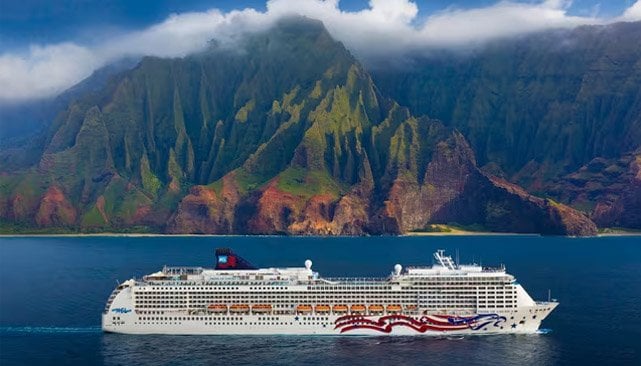DOJ Sides with Cruise Industry Seeking to Block Hawaii’s “Green Fee”

In an unusual move, the Department of Justice filed a motion in federal court seeking to intervene in the pending legal action by the cruise industry against the State of Hawaii. The action is in keeping with the Trump administration’s position that denies climate change and seeks to block individual state efforts, which it sees as damaging to federal policy and commerce.
The motion was filed in the U.S. District Court in Hawaii, arguing that the federal Department of Justice should be permitted to intervene in defending federal law. It takes the position that the private plaintiffs, in this case, the cruise industry, cannot fully represent or protect federal law and that the issue is to ensure the uniformity of the taxation of vessels as established in the U.S. Constitution.
The trade group Cruise Lines International Association (CLIA) filed the suit at the end of August, supported by vendors to the cruise industry and tour operators in Hawaii. It is seeking an injunction to stop Hawaii’s new “Green Fee” from going into effect in January on the basis that they argue the cruise industry is being discriminated against.
At issue is a May 2025 law enacted in Hawaii that imposes additional fees on tourists in hotels and on cruise ships to address climate impact on the state. Hawaii Governor Joshua Green called it “a groundbreaking move for climate action,” saying it could generate as much as $100 million annually, which would be used to fund projects for environmental stewardship.
CLIA is arguing that the fees do not treat the cruise industry and other segments of tourism equally and are not for services being provided to the ships and their passengers. It points to the small increases in hotel costs and the lack of fees on airplanes. At the same time, it argues that under the U.S. Constitution, fees imposed on ships must be approved by the U.S. Congress.
DOJ seeks to intervene, citing this later point under the so-called “Tonnage Clause” in the Constitution, saying that states need Congressional approval for tonnage fees. The motion argues the “United States has a strong interest in ensuring the primacy of Federal law.”
They are also arguing that the “Hawaii unabashedly boasts that this revenue is not for the purpose of paying for services actually provided to incoming cruise ships or their passengers, but for funding climate change initiatives.”
"This scheme to extort American citizens and businesses solely to benefit Hawaii flies in the face of federal law,” asserts the DOJ.
Hawaii has also sought to have the federal court dismissed, arguing that it is a state matter and, as such, should be resolved in state, not federal court.
Falling under the cabotage provisions of the Passenger Services Act, cruising is a small part of Hawaii’s overall tourism industry, as foreign-flag cruise ships cannot transport passengers around the islands or between the mainland and the islands without going to a foreign port. One large, U.S.-flagged cruise ship sails year-round from Honolulu, while foreign-flag cruise ships make port calls during Pacific crossings or operate Hawaii cruises with Mexican port calls to bypass the cabotage restrictions.
Cruises reportedly bring about 3000,000 tourists annually to Hawaii, based on 2023 data. Hawaiian government data shows that there were more than 9.6 million visitors to the state in 2023. During a court hearing at the end of October, however, it was argued that the one cruise ship sailing year-round in Hawaii, Pride of America, is experiencing a 30 percent decline in bookings for 2026 versus 2025 due to the increased cost of the cruises from the “Green Fee.”
Hawaiian officials have said they will vigorously defend the law due to the impact of climate on the state. They said the focus would be on the shoreline and other areas being most impacted by the changes in climate.
